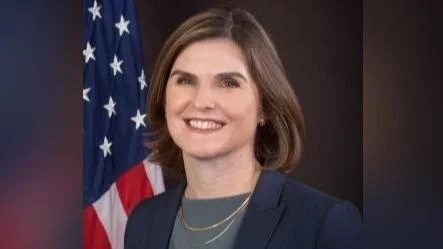Public registration is now open for the 2025 National Eucharistic Pilgrimage events spanning 10 states. The pilgrimage kicks off on May 17 in Indianapolis and concludes on June 22 in Los Angeles. Along the route, eight young adult "perpetual pilgrims" will accompany the Eucharist across 10 states, involving 20 dioceses in prayer, Mass, Eucharistic adoration, community fellowship, and charitable works. Participation is free, but organizers encourage advance registration.
Of particular importance is the pilgrimage's final event, a Corpus Christi celebration in the Archdiocese of Los Angeles, featuring Mass, a Eucharistic procession, and a festival. During an April 10 webinar, event leaders, including Bishop Andrew H. Cozzens, chairman of the National Eucharistic Congress Inc., provided insights into the 2025 pilgrimage, which aligns with the Jubilee Year of Hope declared by the U.S. Conference of Catholic Bishops.
Bishop Cozzens emphasized, "Pilgrimages are really at the heart of what the Jubilee is about," underlining themes of hope, conversion, healing, and reconciliation. The pilgrimage offers a chance for a plenary indulgence, equating its spiritual significance to that of Rome. The route, named after St. Katharine Drexel, an American saint, covers over 3,340 miles, engaging with 20 Roman Catholic dioceses and four Eastern Catholic eparchies.
In Los Angeles, event organizers will commemorate national tragedies and natural disasters with special prayers for healing. The route includes stops at a school in Kansas City founded by St. Katharine Drexel, a hospice in Tulsa, and a prison in Fort Stockton. Processions will also occur en route, including Bishop Louis Tylka of Peoria performing a helicopter blessing.
The closing event on Corpus Christi in Los Angeles anticipates a significant turnout. "I do think we could see as many as 10,000 people or more," predicted Sarah Houde, the NEC’s vice president of events and operations. Bishop Cozzens expressed optimism, stating, "We're excited about future National Eucharistic Congresses, [and] National Eucharistic Pilgrimages.”
 Alerts Sign-up
Alerts Sign-up





